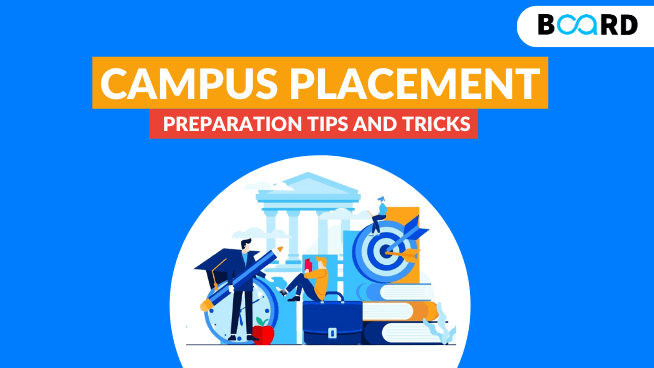
The most exciting and stressful time of your campus life is near. As the placement season has taken shape, discussions about jobs and your career seem to be taking up most of your time.
Emotionally it can be draining and exhausting when companies do not shortlist you or interviews do not go according to plan. We are here to help you plan as we provide you with 10 actionable tips to prepare for your campus placements.
1. First Impressions Matter
Apply with a crystal clear and crisp resume. This document is your gateway to showcase your mettle.
Design your interview to showcase your skills, experiences, academia and achievements. In addition to that, include a strong headline, a clear objective and leave a few good references. If need be, tailor and customize each resume depending upon the job you are interviewing for.
2. Know your Company
Research well about the companies you are interested in. What does their selection process look like, GD, Psychometric test, statement of purpose and more. How many stages of interview do they have and how many potential offers will they make. This will give you a lay of the land on what are your chances with each company and how much time you will require to prepare
3. Practice for Group Discussion and Case Studies
Many companies begin their campus placements with group discussions and case studies. Some B-Schools require you to collaborate, lead and actively drive a project. Due to this, companies are on the hunt for candidates who are comfortable and can work in a group environment.
One has to draw the line between expressing their views confidently and clearly while simultaneously not sounding rude or brash. A handy tip is to brush up on your communications skills. Also, practice your spoken English if need be.
4. Simulate your Interviews
When it comes to placement preparation, merely reading and preparing is not enough. The real test starts when you are in front of the panel. To combat nervousness, anxiety and stress, build up your confidence by practicing a lot before the real deal.
The best way to go about this is through mock interviews. In case you are sceptical about online mock interviews, you can reach out to friends and family and take honest feedback from them
5. Refer to Past Placement Papers
Though this might be a pressure cooker situation for many candidates, most companies resort to a standard set of campus placement interview questions, which are often recycled. Get familiar with the pattern and the
kind of questions expected during an in campus placement
6. Prepare for Commonly Asked Questions
In almost every interview, there is a setlist of common questions. You can compile a list which includes both technical and non-technical and prepare for these questions in advance. Below are a few non-technical questions that are often asked during an interview:
- Introduce yourself
- Describe yourself using 3 words
- What are your strengths/weakness
- What motivates you?
- Why should we hire you?
Doing a solid background study will save you from any surprises during the interview. Do extensive research about the organization's history, competition, challenges, products and services, USPs etc. Knowledge of the aforementioned parameters will leave you better equipped to answer questions and make a good impression. You can also consider taking a mock interview with professionals if you are appearing for interviews in MNCs.
7. Aptitude Test
Many companies that visit engineering and MBA colleges use aptitude tests to assess the intellect of candidates. This test is the initial hurdle you will have to clear before you reach the next round in a campus interview.
There are several resources and channels where you practise this. Board Infinity has a comprehensive and complete aptitude test that covers everything you need to know about these tests. This online Aptitude test covers topics like quantitative aptitude, logical reasoning, data interpretation, verbal and more.
8. Master your Core Subjects
Make sure to know all your core subjects conceptually since the majority of the technical round questions are asked from these subjects. For eg., Computer students need to be well versed with data structures, object-oriented programming, Java, etc., and also have a grip on subjects that they are weak in.
9. Personal Interview
This stage of the process is the litmus test to get placed. All your hard work and preparation boils down to this. This is the time to be confident in your skills.
10. Convert Internships to PPOs
If you are interviewing for an internship, you might wonder, how do I turn this around into a full-time job?
The best approach is to put your heart and soul into the interview. An employer will recognize passion, hard work and dedication when they see it.
Apart from that, keep in touch with the recruiter, and establish connections and trust. In the case of future openings, you might get conducted.
These actionable tips are best proven only when practiced diligently. So begin now, commit to the process and all the best for the future.
